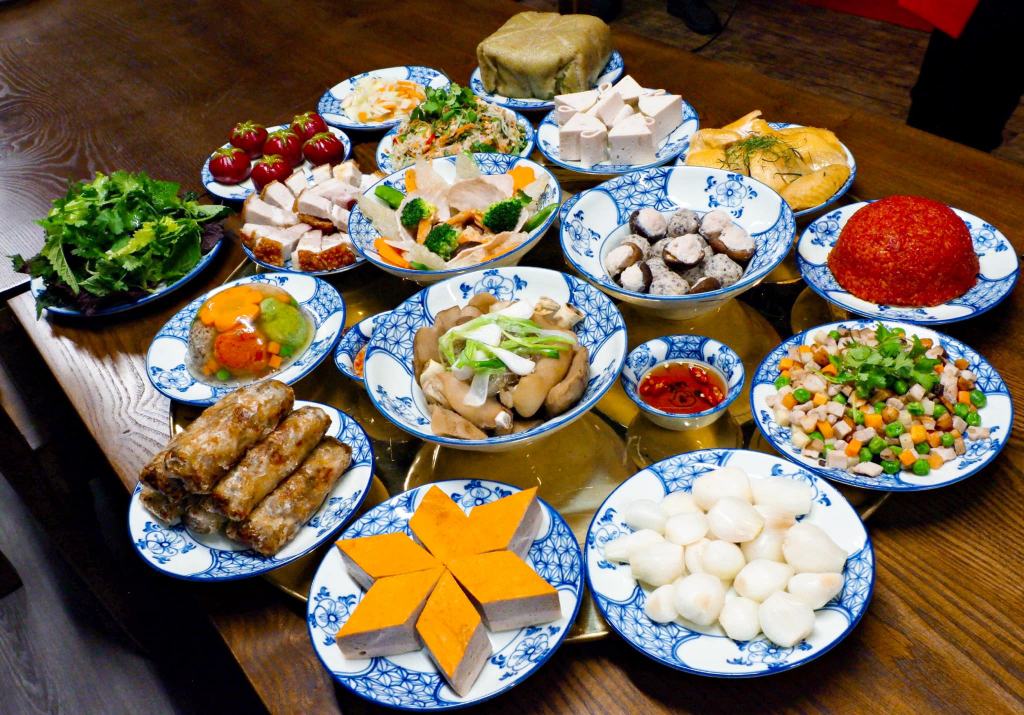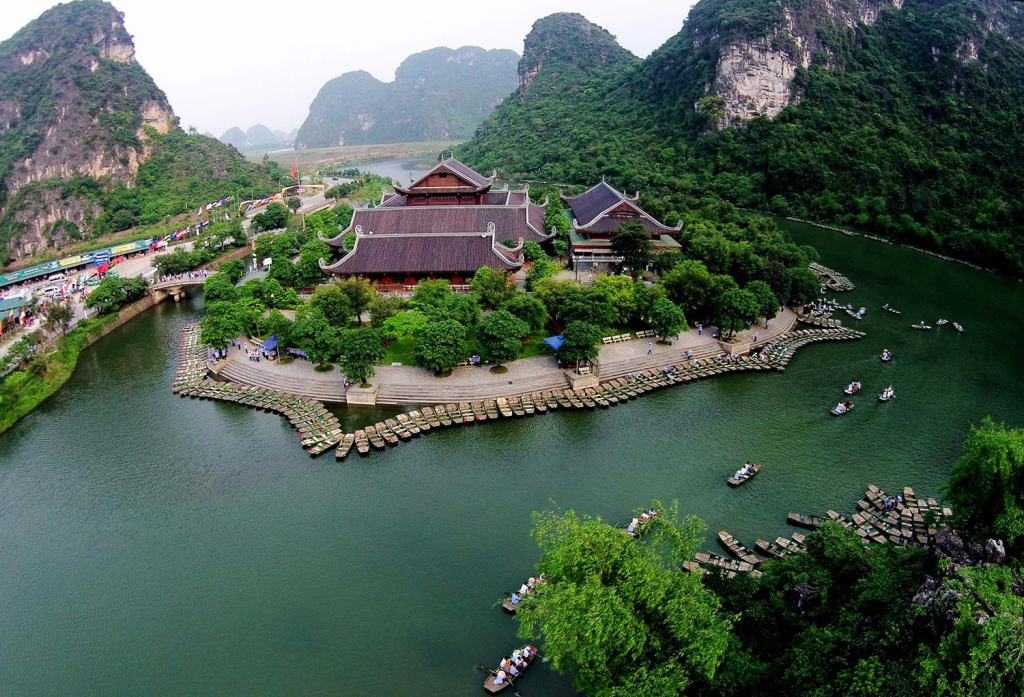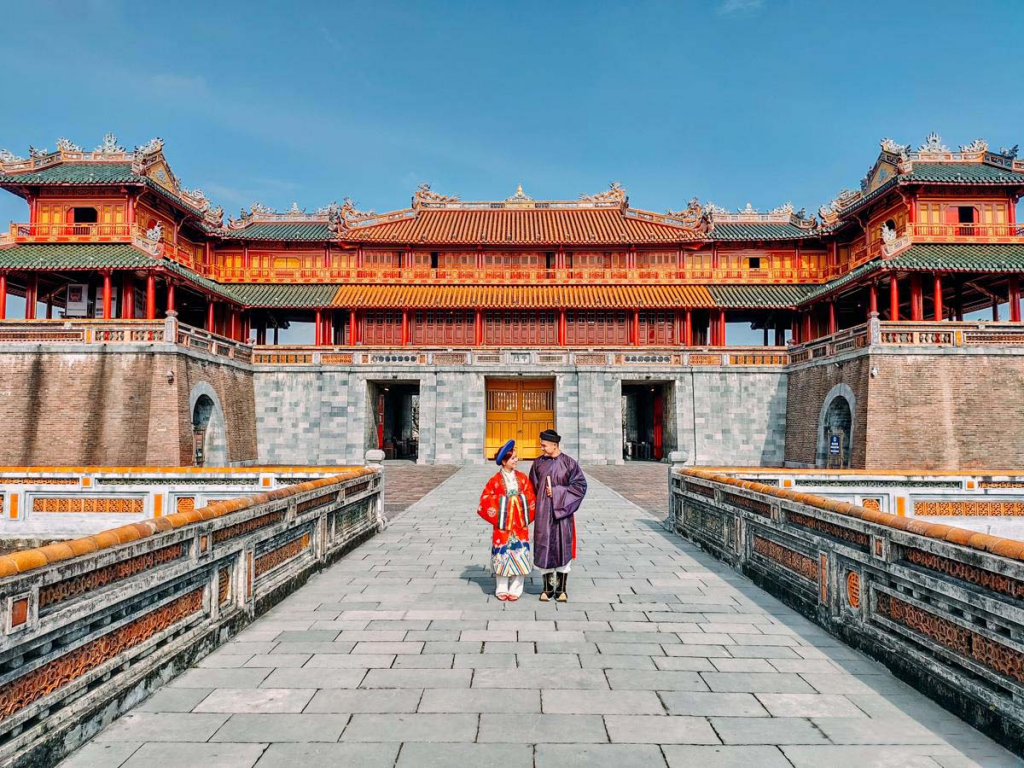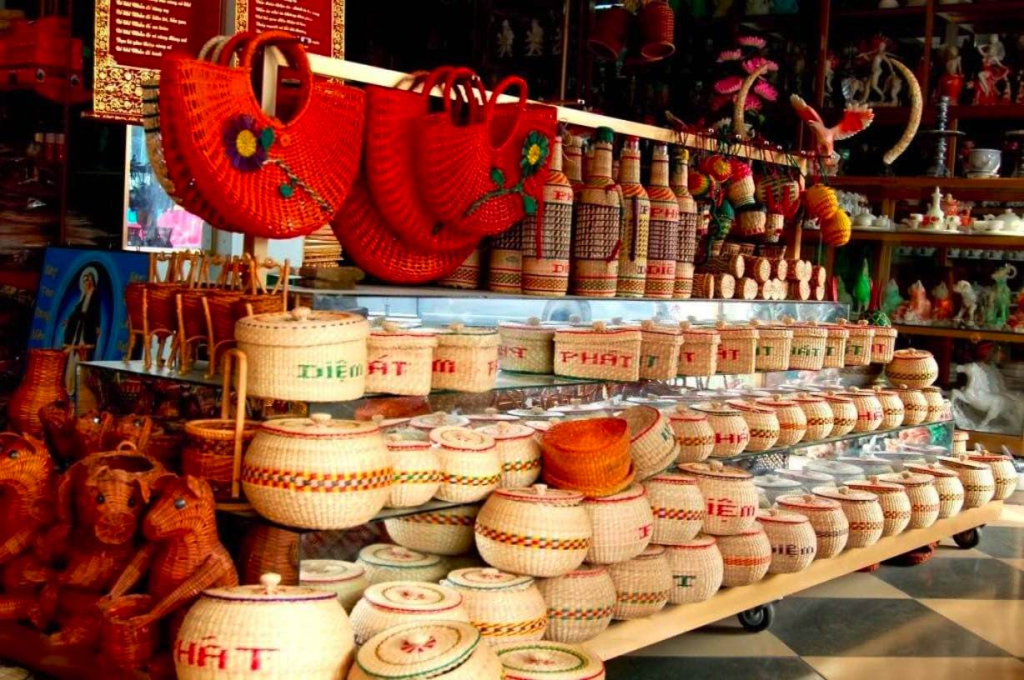Source: https://vinpearl.com/en/traditional-vietnamese-culture
Traditional Vietnamese culture: A complete guide for culture travelers
26/01/202429.930
Amidst the vibrant cities and breathtaking landscapes, the essence of traditional Vietnamese culture endures, offering a unique and enriching experience to culture travelers from all corners of the globe.
Contents

Traditional Vietnamese culture is a fascinating tapestry of ancient customs, artistry, and deep-rooted values
Nestled in the picturesque landscapes of Southeast Asia, Vietnam is a cultural gem, offering a captivating blend of ancient customs and contemporary influences. In this article, we will discover the enchanting realm of traditional Vietnamese culture, where the essence of Vietnam’s rich heritage awaits every intrepid soul seeking an unforgettable Vietnam travel experience.
1. Notable aspects of traditional Vietnamese culture
Traditional Vietnamese culture is a rich tapestry of customs and practices that have been preserved and cherished for generations. Rooted in the country’s history, mythology, and religious beliefs, these aspects form the backbone of Vietnamese identity and continue to shape the nation’s way of life.
1.1. Traditional Vietnamese food

Vietnamese food is renowned worldwide for its flavorful and diverse dishes. Characterized by the use of fresh herbs and vegetables and a delicate balance of sweet, sour, salty, and spicy flavors, Vietnamese cuisine is a celebration of local ingredients and culinary artistry. Each region in Vietnam has its own specialty dishes, contributing to the country’s rich gastronomic heritage. Whether savoring street food in bustling markets or indulging in a feast at a traditional Vietnamese restaurant, the array of tastes and textures in Vietnamese food offers an unforgettable and mouth-watering experience for food enthusiasts from around the world.
Traditional Vietnamese food offers a delightful blend of flavors and fresh ingredients (Source: Collected)
1.2. Traditional Vietnamese festivals

Traditional Vietnamese festivals are vibrant celebrations deeply rooted in the country’s rich cultural heritage and ancient customs. These festivities offer a fascinating glimpse into Vietnam’s history, spiritual beliefs, and agricultural traditions. Among the most significant is Tet Nguyen Dan, the Lunar New Year, Hung Kings’ Temple Festival, a momentous occasion for family reunions, feasting, and paying respects to ancestors. Traditional Vietnamese festivals are a window into the nation’s soul, showcasing the unity of communities, the joy of cultural expression, and the time-honored values that continue to thrive throughout generations.
Vietnam traditional culture is intricately woven into its vibrant festivals, showcasing the nation’s deep-rooted customs and rich heritage (Source: Collected)
1.3. Beliefs and religions in Vietnam

Beliefs and religions in Vietnam form a colorful tapestry of spiritual practices that have shaped the country’s cultural identity. Buddhism, with its profound influence, holds a prominent place as the largest religion in Vietnam. Alongside Buddhism, Taoism and Confucianism have also left their indelible mark, shaping societal values and moral codes. Vietnam also embraces Christianity, especially Catholicism, brought by Western missionaries. Traditional folk beliefs, rooted in animism and ancestor worship, coexist with these organized religions, adding a unique spiritual dimension to daily life.
Traditional Vietnamese culture is deeply intertwined with its diverse beliefs and religions (Source: Collected)
1.4. Traditional Vietnamese costumes

Vietnam’s traditional clothing is a splendid reflection of the country’s diverse cultural tapestry. While the elegant “ao dai” remains the epitome of Vietnamese attire, the nation’s ethnic groups contribute a captivating array of traditional costumes, each an embodiment of their unique heritage. Each costume serves as a visual language, conveying a rich history, customs, and beliefs unique to its wearers. These traditional attires are cherished and worn during cultural festivals, ceremonies, and everyday life, acting as a living link between generations and preserving the authenticity of Vietnam’s diverse cultural heritage.
Traditional Vietnamese culture is intricately expressed through an enchanting array of traditional costumes (Source: Collected)
1.5. Traditional Vietnamese performing arts

Traditional Vietnamese performing arts encompass a captivating array of cultural expressions, embodying the nation’s rich history and artistic finesse. Among the most iconic forms is water puppetry, a centuries-old art where skillful puppeteers manipulate wooden figurines on water, accompanied by traditional music and vocals. This mesmerizing spectacle brings ancient legends and folktales to life, showcasing Vietnam’s deep-rooted storytelling traditions. Preserving these time-honored performing arts is a testament to Vietnam’s pride in its cultural legacy and its commitment to passing down these artistic treasures to future generations.
Traditional Vietnamese music is a captivating blend of instruments and rhythms reflecting the nation’s cultural heritage and artistic brilliance (Source: Collected)
1.6. Traditional Vietnamese literature

Traditional Vietnamese literature is a rich and diverse tapestry of literary works that have shaped the cultural identity of the nation. Spanning from ancient times to the present day, these literary treasures encompass a wide range of genres, including poetry, folktales, historical narratives, and philosophical writings. One of the most esteemed works is “Truyen Kieu” (The Tale of Kieu), penned by the renowned poet Nguyen Du in the 19th century. Additionally, traditional Vietnamese literature often incorporates Confucian values and Buddhist influences, reflecting the deep spiritual and philosophical traditions that have shaped traditional Vietnamese culture over the centuries.
Vietnamese traditional culture finds its eloquent expression in literature, a treasure trove of stories and poems (Source: Collected)
1.7. Traditional Vietnamese architecture

Traditional Vietnamese architecture is a testament to the country’s rich cultural heritage and ingenuity in adapting to its diverse landscapes and climates. Rooted in centuries-old practices, Vietnamese architecture is characterized by its harmonious integration with nature and reverence for spiritual beliefs. Additionally, pagodas, temples, and communal houses showcase the exquisite craftsmanship and intricate details of Vietnamese architecture, reflecting the nation’s spiritual devotion and artistic finesse.
The most renowned architectural masterpiece is the Imperial City of Hue, a UNESCO World Heritage Site, known for its majestic citadel, imperial tombs, and ornate palaces. It represents the architectural brilliance of Vietnam’s feudal past.
Traditional Vietnamese culture is gracefully reflected in the country’s architecture (Source: Collected)
1.8. Traditional Vietnamese fine-art handicrafts

Traditional Vietnamese fine-art handicrafts are a testament to the country’s artistic prowess and cultural heritage. These exquisite creations, such as silk weaving, lacquerware, bamboo and rattan craftwork, and ceramic art, exemplify the meticulous craftsmanship and creativity of Vietnamese artisans. Traditional Vietnamese fine-art handicrafts not only serve as functional objects but also embody cultural symbolism and artistic expression, reflecting the nation’s deep appreciation for creativity and craftsmanship. These timeless creations continue to be cherished and passed down through generations, preserving the soul of Vietnam’s fine-art heritage.
Vietnam tradition and culture come alive through the exquisite fine-art handicrafts (Source: Collected)
1.9. Time-honored values, traditions and customs of Vietnam

Time-honored values, traditions, and customs form the bedrock of Vietnamese society, carrying a profound significance that continues to shape the nation’s identity and way of life. One of the most cherished values is the deep respect for family and community, with filial piety being a guiding principle that emphasizes care and support for the elders. Ancestor worship is another enduring tradition. Festivals and rituals, deeply intertwined with agricultural practices and religious beliefs, celebrate communal unity and provide an opportunity for families to come together in celebration. Traditional customs, such as bowing to show respect and presenting gifts as gestures of goodwill, underscore the importance of courtesy and politeness.
Vietnam traditions and customs form a vibrant tapestry of cultural practices and values, reflecting the timeless wisdom of the nation (Source: Collected)
More about culture of Vietnam:
https://www.britannica.com/place/Vietnam/Daily-life-and-social-customs
https://internationalliving.com/countries/vietnam/traditions-and-culture-in-vietnam
https://www.indochinavoyages.com/travel-blog/things-know-traveling-vietnam
Be First to Comment